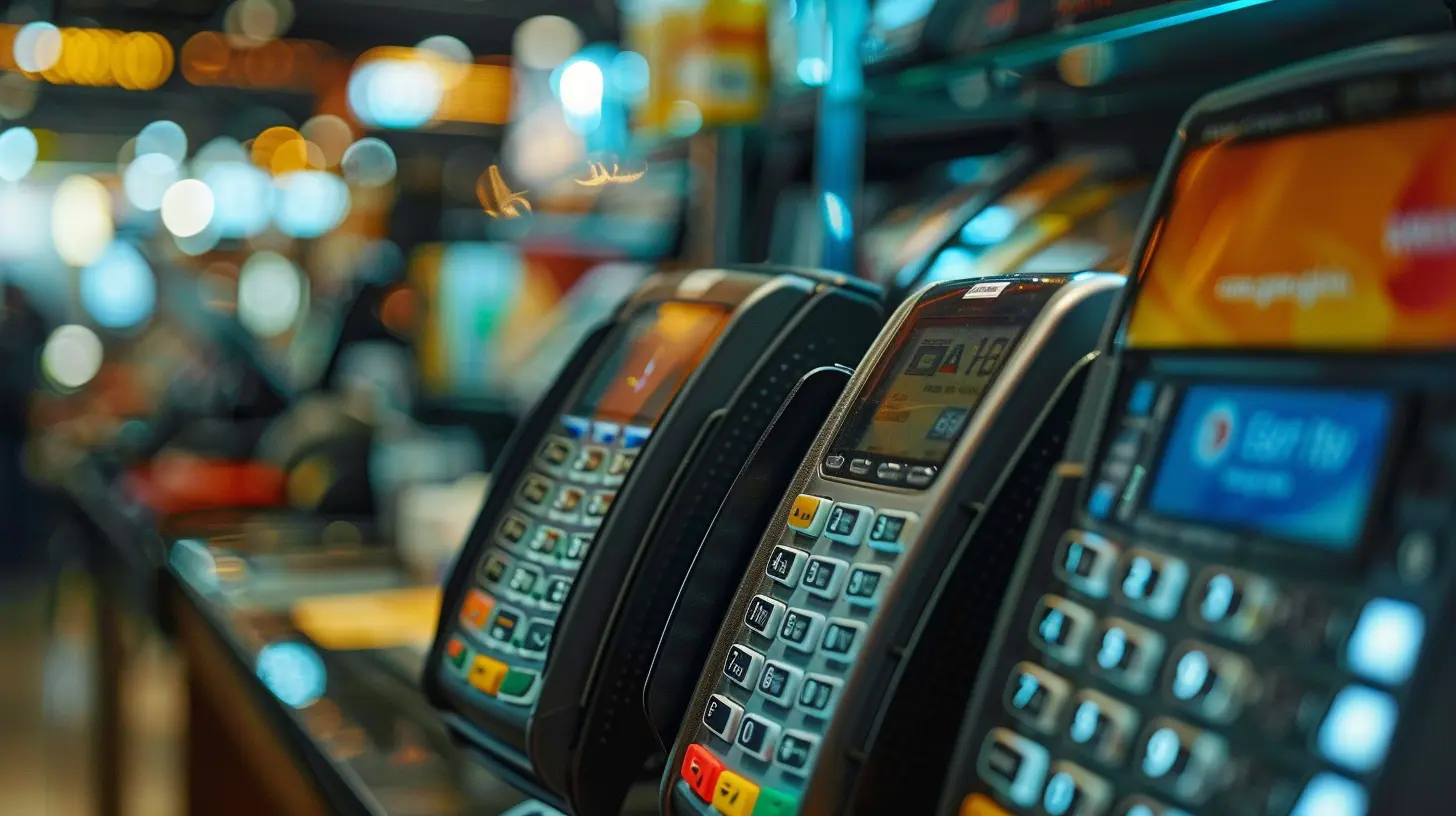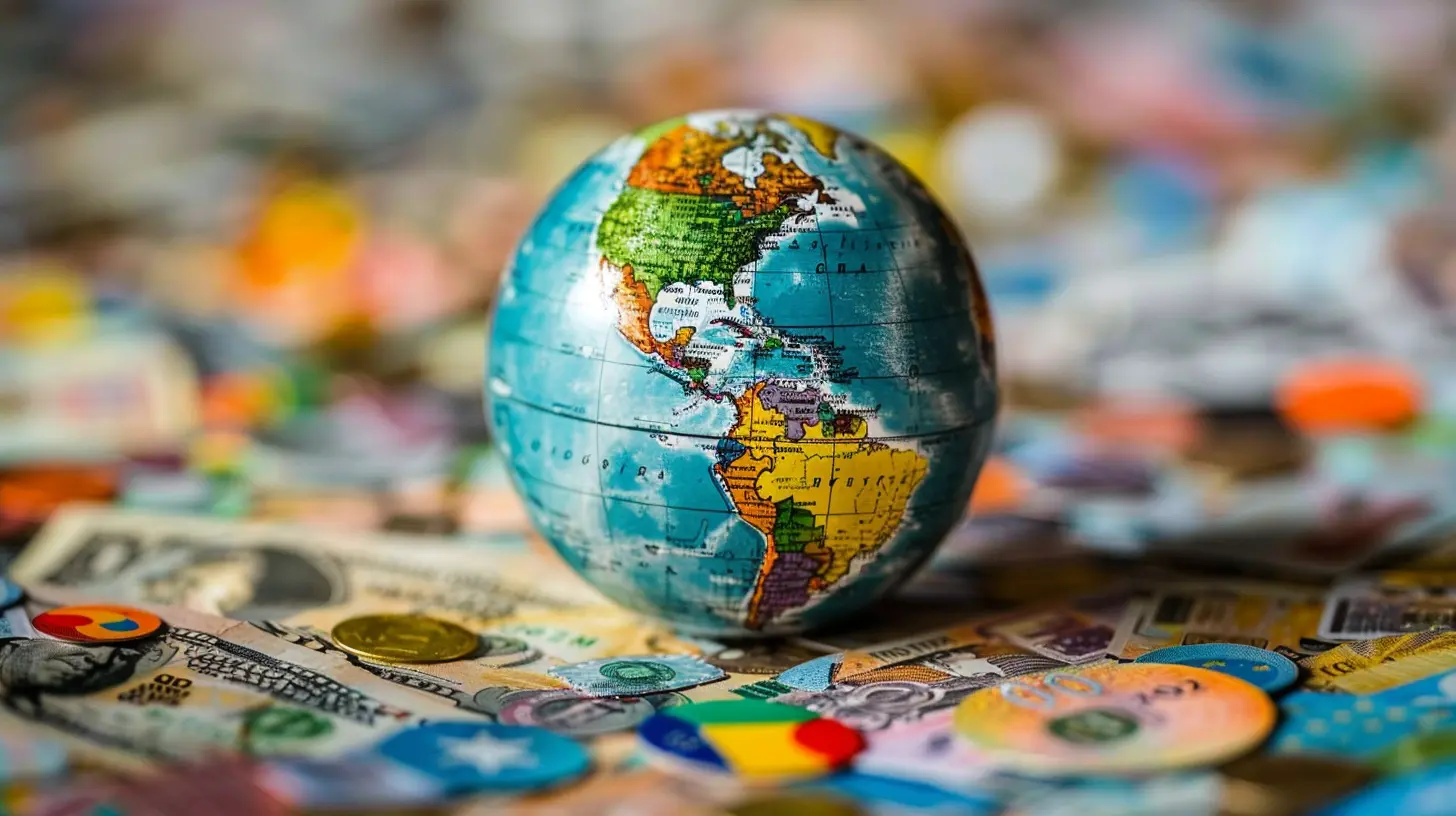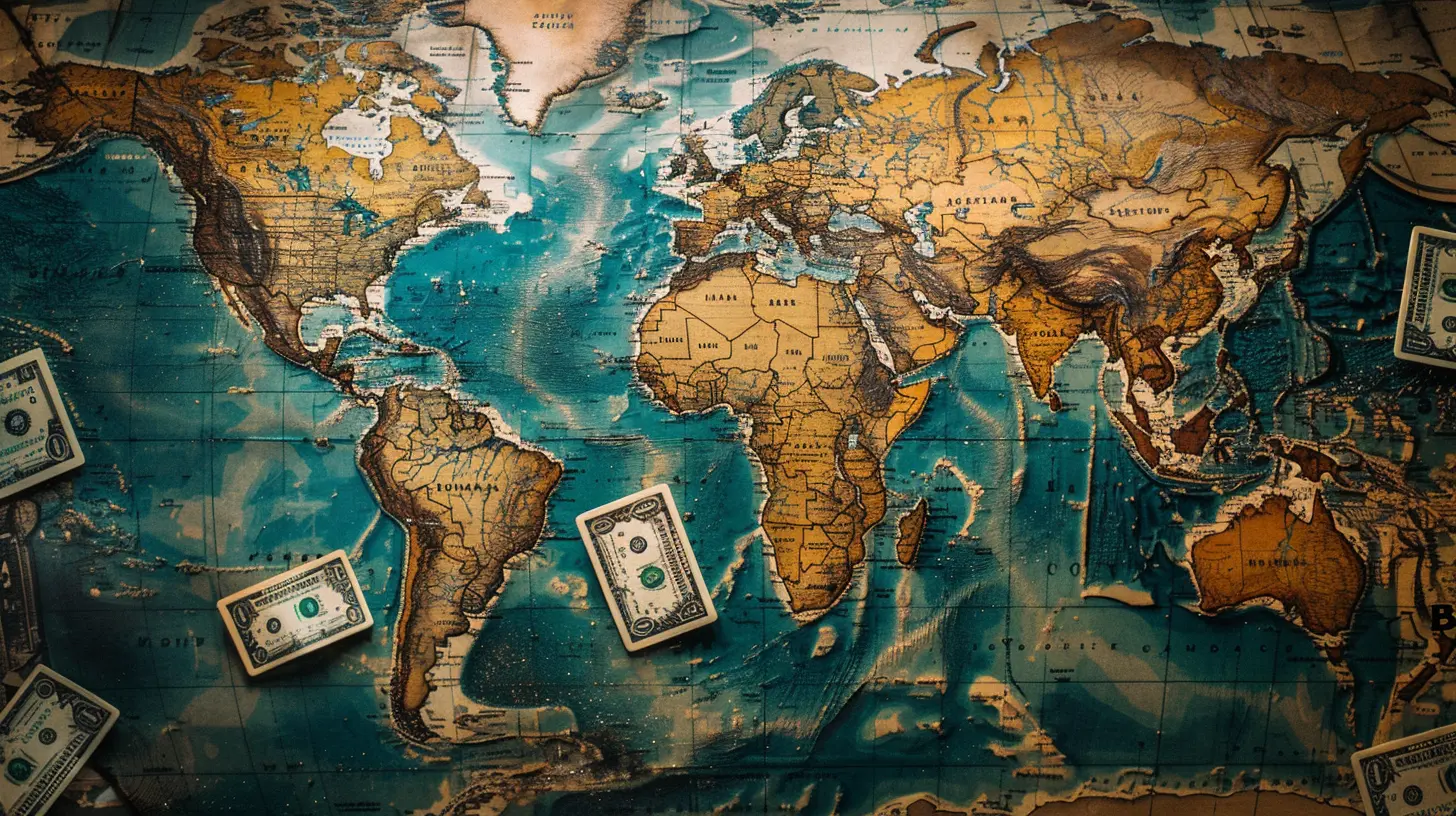How Fintech is Facilitating Cashless Societies Across the Globe
24 July 2025
Technology is reshaping the world faster than we can keep up with. One of the most significant shifts happening right now? The move toward cashless societies. You’ve probably noticed it yourself—fewer people are reaching for crumpled bills or jingling coins, and more are tapping their phones or swiping cards. But what’s really pushing this change? Fintech. In case you’re wondering, fintech is short for "financial technology," and it’s revolutionizing the way we handle money.
In this article, we're going to break down how fintech is making cashless societies not only possible but also practical and accessible. From digital wallets to cryptocurrencies, fintech is the invisible force behind a world where physical cash is becoming irrelevant. Ready to dive in? Let’s go!

The Rise of Cashless Societies
Before diving into the fintech side of things, let’s first talk about why cashless societies are becoming a global trend. Just think about it for a second: how often do you use cash in your daily life? Probably less than you did five years ago, right?The convenience of digital payments is hard to beat. Whether it’s buying a coffee, paying for an Uber, or splitting the dinner bill with friends, going cashless is just easier. But it’s not just about convenience; it’s also about safety. With cashless transactions, there’s less risk of theft, fraud, or even losing your wallet. Plus, it’s quicker and often more secure than dealing with physical money.
But this shift isn’t just happening in one or two countries. From Sweden to Singapore, and Kenya to South Korea, entire nations are moving toward cashless economies. And fintech? It’s the engine powering this transformation.

What Is Fintech?
Before we get too far, let’s clarify what fintech actually is. Fintech refers to any technology that seeks to improve and automate the delivery and use of financial services. It’s a broad term that covers everything from mobile banking apps to peer-to-peer payment platforms like Venmo or PayPal.The goal of fintech is simple: make financial services more accessible, easier to use, and more efficient. And guess what? It’s doing just that. By leveraging technologies like artificial intelligence, blockchain, and big data, fintech companies are able to offer services that are faster, cheaper, and more secure than traditional financial systems.
Now, let’s dig into how fintech is specifically facilitating cashless societies.

Digital Wallets: The Heartbeat of Cashless Payments
When was the last time you bought something online? Chances are, you didn’t pull out a wad of cash to do it. Digital wallets, like Apple Pay, Google Pay, and PayPal, are at the forefront of this cashless movement. In fact, digital wallets have become the go-to for millions of people worldwide when making everyday purchases.Digital wallets allow you to store your credit or debit card information securely on your smartphone or computer. When you make a purchase, all you have to do is tap your device or click a button, and voila! Payment complete. No need to fumble for cash or wait for change.
The beauty of digital wallets is that they are not limited to any one device or platform. Whether you’re using a smartphone, smartwatch, or computer, you have access to your funds anytime, anywhere. This convenience has made digital wallets a key player in the global shift toward cashless transactions.
Why Are Digital Wallets So Popular?
- Convenience: Let’s be real—who wants to carry around a bulky wallet when everything you need is on your phone?- Security: Many digital wallets offer encryption and tokenization, making transactions more secure than using physical cards or cash.
- Speed: Payments are almost instant, cutting down on the time you spend standing in line.
Fintech companies have made it super easy for people to adopt cashless lifestyles, and digital wallets are one of the most accessible tools out there.

Peer-to-Peer (P2P) Payment Platforms
If you’ve ever used apps like Venmo, Cash App, or Zelle, you’ve already dipped your toes into the world of peer-to-peer (P2P) payment platforms. These apps make it incredibly easy to send money to friends or family, split bills, or even pay for services.Instead of having to go to the bank or withdraw cash, you can send money instantly with just a few taps on your phone. Over time, these platforms have become a favorite for younger generations who tend to avoid traditional banking services.
How Do P2P Platforms Support Cashless Societies?
- Instant Transfers: You can send or receive money in real-time, without the need for cash.- Global Reach: Many P2P platforms work internationally, allowing you to send money across borders without the hassle of currency exchange or high fees.
- Low Fees: These platforms tend to have lower fees compared to traditional banks, making them a more attractive option for quick transactions.
As fintech continues to evolve, we’re likely to see more P2P payment platforms emerge, further driving the global shift away from cash.
The Role of Cryptocurrencies in Cashless Societies
Now, let’s talk about something a bit more futuristic—cryptocurrencies. You’ve probably heard of Bitcoin, Ethereum, or maybe even Dogecoin (thanks, Elon Musk!). Cryptocurrencies are digital currencies that operate on decentralized networks, which means they aren't controlled by any government or financial institution.While cryptocurrencies are still in the early stages of widespread adoption, they represent a significant step toward a cashless future. Some would argue that cryptocurrencies are the ultimate form of cashless payment since they eliminate the need for both physical currency and traditional banking infrastructure.
How Cryptocurrencies Are Driving Cashless Economies
- Decentralization: Cryptocurrencies operate on blockchain technology, which allows for secure, transparent, and direct peer-to-peer transactions without intermediaries like banks.- Global Accessibility: Cryptocurrencies are borderless, meaning you can make transactions anywhere in the world without worrying about exchange rates or banking fees.
- Security: Blockchain technology ensures that transactions are secure and nearly impossible to alter once they are recorded.
While we’re not yet at a point where you can pay for your groceries with Bitcoin everywhere, the rise of cryptocurrencies could very well be a big part of the future of cashless societies.
Fintech in Developing Economies: A Game Changer
One of the most exciting things about fintech is how it’s impacting developing countries. In many parts of the world, access to traditional banking services is limited, and people rely heavily on cash transactions. But fintech is changing that.Take Kenya, for example. The mobile payment platform M-Pesa has completely transformed the way people in Kenya handle money. With M-Pesa, users can send and receive money, pay bills, and even access small loans—all through their mobile phones. This has made financial services accessible to millions of people who previously had no access to banks.
Benefits for Developing Economies
- Financial Inclusion: Fintech provides access to financial services for people who are unbanked or underbanked.- Economic Growth: By enabling easier access to payments, loans, and savings, fintech can help stimulate local economies.
- Reduced Reliance on Cash: In areas where cash was once king, mobile payment platforms are helping to drive the shift toward cashless transactions.
Fintech isn’t just a tool for wealthy, developed nations. It’s also a powerful force for economic equality and financial empowerment in regions that have been underserved by traditional financial systems.
The Future of Cashless Societies
It’s clear that fintech is playing a pivotal role in facilitating cashless societies across the globe. But where do we go from here? Well, the future looks bright—and even more cashless.We’re likely to see more innovations in digital payment technologies, from biometric payments (think facial recognition or fingerprint scanning) to the widespread adoption of cryptocurrencies. Governments and central banks are even exploring the idea of creating their own digital currencies, known as Central Bank Digital Currencies (CBDCs). If implemented, CBDCs could further accelerate the transition to cashless economies.
Fintech is also expected to continue breaking down barriers, making financial services even more inclusive and accessible. As more people adopt digital payment methods and the underlying technology continues to improve, the world will undoubtedly become more cashless.
Challenges Ahead
Of course, no transition comes without its challenges. Security concerns, privacy issues, and the digital divide are all significant hurdles that need to be addressed. Not everyone has access to the internet or a smartphone, and some people still prefer using cash for privacy reasons. Governments, fintech companies, and consumers will need to work together to ensure that the move toward cashless societies is inclusive and secure for everyone.Conclusion
The cashless revolution is well underway, and fintech is leading the charge. From digital wallets to cryptocurrencies, fintech is making it easier than ever to live without cash. Whether you’re in a bustling city or a rural village, fintech is opening doors to financial services that were once out of reach.While there are certainly challenges to overcome, the future of cashless societies looks promising. So next time you reach for your phone to make a payment, remember—you’re part of a global movement that’s changing the way we think about money.
all images in this post were generated using AI tools
Category:
FintechAuthor:

Reese McQuillan
Discussion
rate this article
1 comments
Azurael James
This article succinctly highlights fintech's pivotal role in advancing cashless societies, emphasizing innovations like mobile payments and blockchain technology. Such solutions not only enhance transaction efficiency but also promote financial inclusion globally.
August 12, 2025 at 2:34 AM

Reese McQuillan
Thank you for your insightful comment! I'm glad you found the article highlights the significant impact of fintech in fostering cashless societies and promoting financial inclusion.


